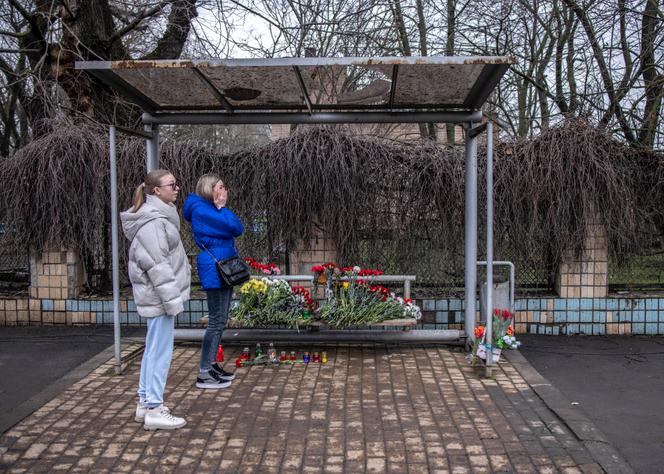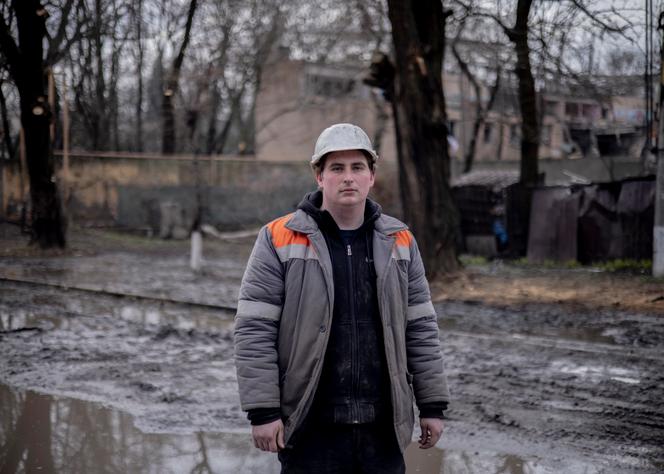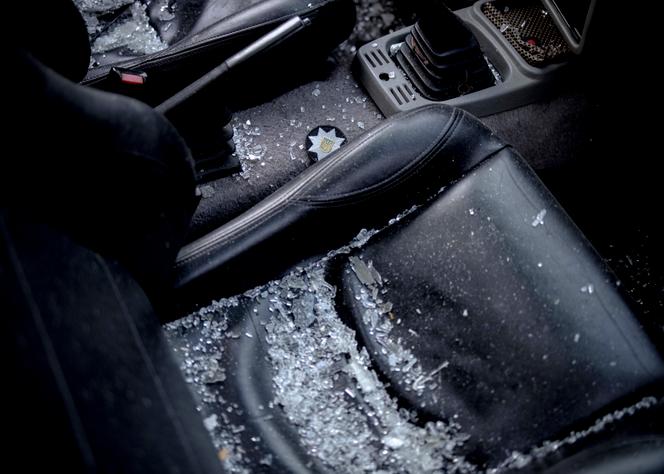


More than 24 hours had passed since Dacha-Kovalevsky Street was hit. A memorial of flower bouquets for the 21 dead covered a bus stop bench. The words "eternal memory" were placed on stone blocks next to the date Friday, March 15. Passers-by walked down the tree-lined alley through this usually peaceful residential neighborhood, stopping in front of the remains of several gutted houses, blocked off by police.
Denys was just a few streets away when the first missile, fired from occupied Crimea, hit. On March 16, the day after the deadliest strike on Odesa since the beginning of the invasion, the 20-year-old electrician struggled to hide his exhaustion.


The young man awkwardly pointed to the place where the dead and wounded rescuers were laid to rest. The latter were hit by a second missile as they tried to help the victims of the first strike. This tactic, aimed at rescue services, has been frequently used by Russia, first in Syria, then in Ukraine. "I'm not afraid anymore," said Denys, referring to the regular attacks on the port city. "But when we got here, it was very hard."
"The Russians will do anything to occupy Odesa," whispered 42-year-old Artur, gazing into the distance before pointing to the shrapnel impacts projected by explosions onto the walls of the neighborhood. He scrolled through the photos on his phone: a body in a white bag, blood stains on the ground. The man with stubble explained that he is part of the network of civilian volunteers who regularly go to the bombed areas to help. "Everyone knows it wasn't just a random target," he said, going on to explain that the previous day's attack was aimed at a military base in the neighborhood.
In addition to the dozens of wounded and civilian casualties killed, the Ukrainian authorities announced the death of two former high-ranking Odesa police officers serving in a police assault brigade called Lyut. One of them was a battalion commander. A former deputy mayor of the city, who had joined the army, was also killed. "They had just come back from the front line," deplored Veronika Etnarovych, an adviser to the mayor, who visited the scene of the tragedy. Rumors of the arrest of a Ukrainian informant who reported the presence of these soldiers to the Russian armed forces have not been confirmed.
Deadly attacks on the city of Odesa have increased in recent weeks. Five people were killed on February 22 and 23; 12 on March 2; five on March 6, when Ukrainian President Volodymyr Zelensky and Greek Prime Minister Kyriakos Mitsotakis were visiting; and 21 on March 16. Night-time attacks by kamikaze drones launched from Crimea are particularly frequent. The skies over Odesa are then swept by the light beams of air defense searchlights, tasked with spotting them to shoot them down.
You have 52.07% of this article left to read. The rest is for subscribers only.
